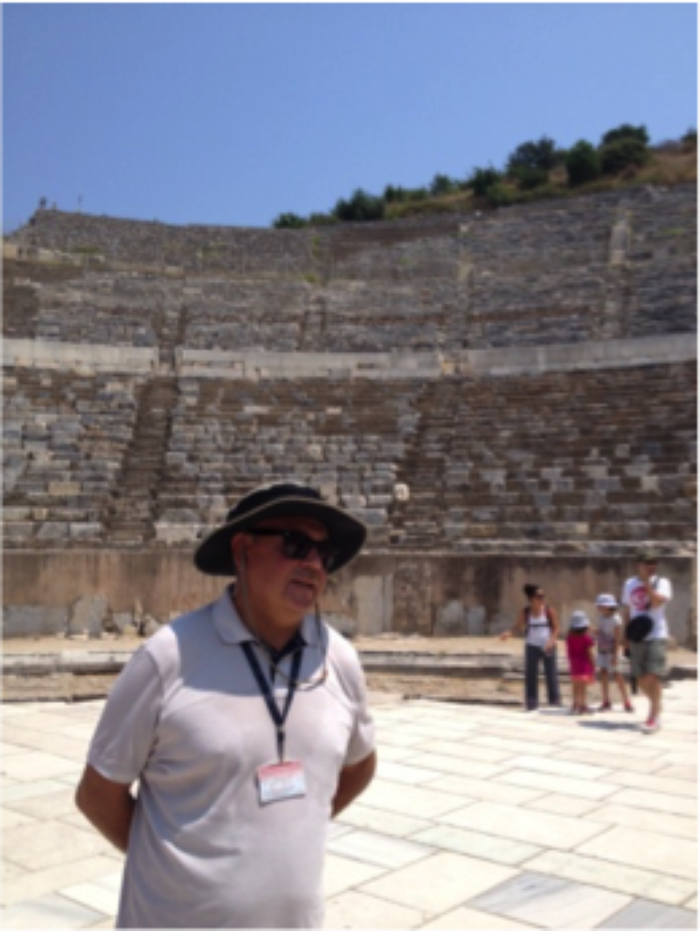 Uncategorized
Uncategorized
In light of the multiple thousands of denominations existing over and against Je...
 Uncategorized
Uncategorized
By: ECO Team
I have just been to Turkey for a family wedding. My brother, whose son was the one getting married, suggested that we go early and visit some of the biblical sites. Our itinerary included Ephesus and Miletus, featured prominently in Acts 18-20. Our guide was well-versed in both the general history and in the biblical history. He made Paul and his missionary band come alive for us on a sweltering August day. (Note to readers: try a fall visit to Ephesus. The weather is much more pleasant!)
As we learned the wider context—political, economic, and religious—of Paul’s 3-year sojourn in and out of Ephesus, a number of thoughts came to mind. They have served me as a kind of reality check, as I seek to follow Jesus into the world.
I tend to see the “big picture” that Luke portrays in Acts, namely the spread of the gospel from Jerusalem to Rome, in line with Jesus’ word to the disciples right before he ascended to heaven: “You shall be my witnesses in Jerusalem, Judea and Samaria, and to the ends of the earth.” My visit to Ephesus struck me anew with the innumerable challenges the early church faced in the first century, A.D.
• When Paul first went to Ephesus, he shared the good news of Jesus with the local synagogue. The Jews gave him a hearing, but for the most part they rejected the message. His own people, from a cultural milieu similar to his (Paul’s hometown, Tarsus, is also located in what is now Turkey), did not concur with his version of how God had fulfilled his promises to Abraham and his descendants through Jesus.

That rejection caused Paul to turn to Gentiles as well as Jews. In Ephesus, a viral movement to Jesus broke out. First, a wealthy Roman citizen, Tyrannus, made the large hall in his home available to Paul to teach the message. Over a two-year period, the whole region of Asia heard the word of the Lord, writes Luke. The next thing we hear is that miracles occurred. People gave up their former gods, magic, and witchcraft.
• But a new problem arose. So many were turning to Christ that it threatened the livelihood of those, like Demetrius the silversmith, who made statues of the chief goddess of Ephesus, Artemis. Only this Artemis was not the huntress of Greek mythology. She was more akin to the Anatolian mother goddess, Cybele. A near riot broke out in the amphitheater, and Paul departed the city. The way of Jesus brought transformations to the life and manner of people that were not welcomed by others, and they wanted to stop the Followers of the Way.
• The last time we see Paul in the area of Ephesus, he has called the elders of the church to meet him at the port of Miletus, a good day’s walk for them, where he gives them final instructions and informs them that they will never see him again. He speaks of coming suffering for him and of attacks on the church from within. The shepherds of the church in Ephesus will have to be vigilant against those “savage wolves.”
Several of us on that tour of Ephesus and Miletus wondered, “How did they accomplish anything, those first-century Christians, with so much against them?” Jews opposed them, economic interests threatened their well-being, and the near future did not look any more promising—personal suffering, outright persecution, and internal strife from false teachers.
Lest we get overwhelmed by all the challenges, the fact remains that God was at work in the missionary faithfulness of Paul and Timothy, Priscilla and Aquilla, and multitudes of unnamed Christians. “They turned the world upside down,” records Luke in Acts 17. So with all the difficulties we will face in our mission fields in the 21st century, we also have powerful incentives to emulate the missional faithfulness of first century disciples.
• We, like they, have the assurance from Christ himself that he will build his church on the faithfulness of his followers (Matthew 16).
• We, like they, have the Holy Spirit to guide us to those whom God has prepared to hear and obey the word of God—the modern-day “persons of peace” (Luke 10) like Tyrannus of Ephesus and Lydia of Phiippi.
• And whether our personal path leads us to blessing or adversity, like Paul we can stake our lives on the belief that “all things work together for those who love God, who are called according to his purpose,” and that “nothing can separate us from the love of God in Christ Jesus our Lord.”

 Uncategorized
Uncategorized
In light of the multiple thousands of denominations existing over and against Je...
 Uncategorized
Uncategorized
My first pastoral call was to the First Presbyterian Church of Winnfield, a litt...
 Uncategorized
Uncategorized
This semester, I’m teaching “The Holy Spirit and the Church.” Our primary textbo...